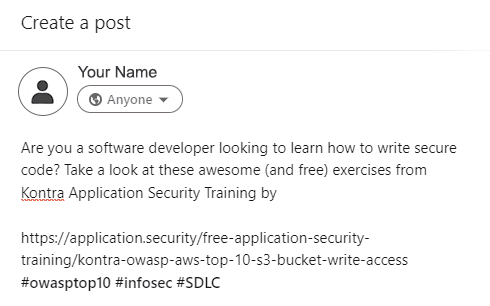Top 10 vulnerabilities for Kubernetes
Get Trained and Stay Ahead of Cybersecurity Threats with Our Vast Library of Application Security Training Content.
ThriveDX is now IronCircle » Learn More
Get Trained and Stay Ahead of Cybersecurity Threats with Our Vast Library of Application Security Training Content.










Experience the full Kontra platform and see what it can do for you and your team.

Stay updated with news and press releases from ThriveDX
Are you ready to gain hands-on experience with the IT industry’s top tools, techniques, and technologies?
Take the first step and download the syllabus.
Contact (212) 448-4485 for more information. I also agree to the Terms of Use and Privacy Policy.
